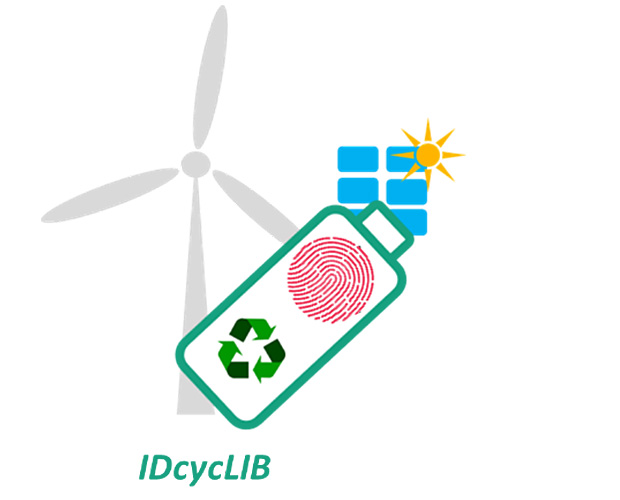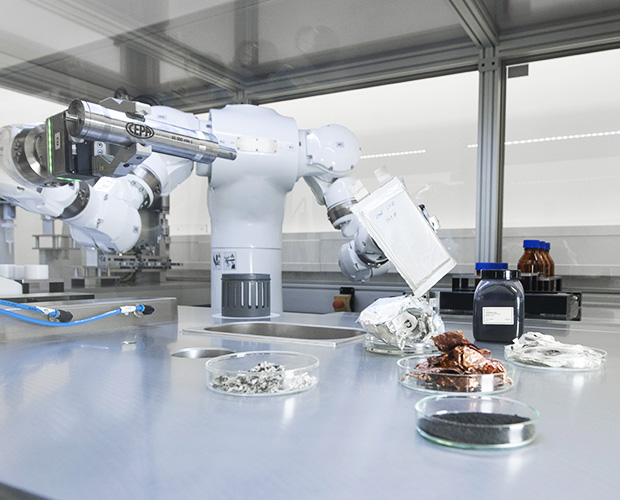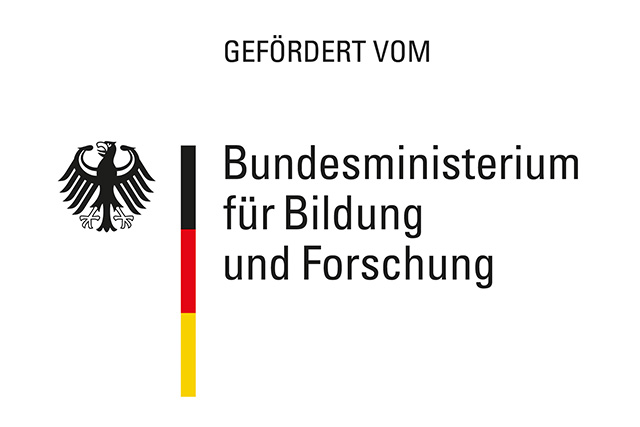IDcycLIB: Innovation platform of a green, detectable and directly recyclable lithium-ion battery
Technological sovereignty and job security in Germany, the sustainable rethinking and redirection in the use of raw materials - the most efficient possible use and resource-conserving utilization concepts - are major challenges facing the industrial sectors in Europe and worldwide. In particular, the shift away from fossil-fueled mobility to sustainable electromobility based on renewable energy sources has intensified the discussion about the resource requirements for the batteries needed for this. This is precisely where the IDcycLIB joint project comes in with forward-looking concepts.
With increasing registration numbers of electric vehicles, sustainable production and recycling of traction batteries are gaining weight - literally. Thanks to coordinated joint research efforts, battery cells should also be able to be produced in Germany and Europe in the future. Against this backdrop, cell production processes must be designed to be as environmentally friendly as possible, and battery materials must be recovered and reused as efficiently as possible. Only in this way can battery-based electromobility become truly future-proof and sustainable. The know-how for this can also develop into a decisive competitive advantage in the battery market if - as expected - the required resources become increasingly scarce and thus more expensive as demand simultaneously rises.
As things stand today, however, relatively little is known about used traction batteries, i.e. those installed in vehicles, in terms of their respective components, cell chemistry and condition, for example - a proverbial black box. This makes recycling and reuse difficult and expensive, and thus economically unattractive. The recycling capacities available to date are correspondingly low. In addition, cell and battery concepts have not been well equipped for digitization to date. This is now set to change with the IDcycLIB (Innovation Platform of a Green, Detectable and Directly Recyclable Lithium-Ion Battery) collaborative project funded by the German Federal Ministry of Education and Research.
Five pillars for a sustainable and economical battery cycle
In the IDcycLib project consortium, 12 partners from industry and research have joined forces to make a coherent sustainable and industry-ready concept for battery cell production, recycling and reprocessing transferable.
"Green" battery cells
Water-based manufacturing processes for battery electrodes and functional materials (no solvents and process chemicals of concern).
Design for Recycling
Battery cells should already be easy and automated to disassemble by their design and the nature of their components, and the functional materials can be easily and cost-effectively sorted and processed for reuse in new batteries.
Detectability/battery passport/digital twin
The cell components are coded with tamper-proof particulate markers that can be read automatically. This enables automated presorting according to cell chemistry and components, separation and reprocessing processes are simplified, and material flows are digitally recorded.
Efficient recycling processes
Gentle water-based electrohydraulic disassembly and material-sensitive sorting with novel centrifuge technology ensure high purity of recovered material fractions for subsequent regeneration.
Sustainability assessment accompanying development
By means of Life Cycle Assessment and Life Cycle Costing, the derivation of parameterized models as well as the development of suitable software tools (LCA Calculator, data exchange platform) for the evaluation and control of digitally recorded material flows, the way to a sustainable development and recycling of batteries can be paved.
With these five pillars, the collaborative project IDcycLIB aims to build and test the tools that will enable sustainable manufacturing and use and economic recycling of battery cells as well as digital data management in the future. The resource-saving circular economy will thus not only become possible for lithium-ion batteries (LIB), but also economically attractive. In addition, interfaces for future innovations - e.g. digital recording of the cell condition - will also be created.
IDcycLIB is thus expected to contribute to reducing supply risks and improving the ecological footprint and economic viability of LIB.
Further project information
Project duration
01.10.2021 – 30.09.2024
Funding code
03XP0393A-J
Partners
- Carl Padberg Zentrifugenbau GmbH (Koordinator)
- Fraunhofer-Institut für Silicatforschung ISC
- Fraunhofer-Institut für Integrierte Schaltungen IIS
- Friedrich-Alexander Universität Erlangen-Nürnberg
- Polysecure GmbH
- Pure Devices GmbH
- MAB Recycling GmbH
- iPoint-systems GmbH
- IFU Institut für Umweltinformatik Hamburg GmbH
- EurA AG
- BASF SE (assoziierter Partner)
- Leclanché GmbH (assoziierter Partner)


